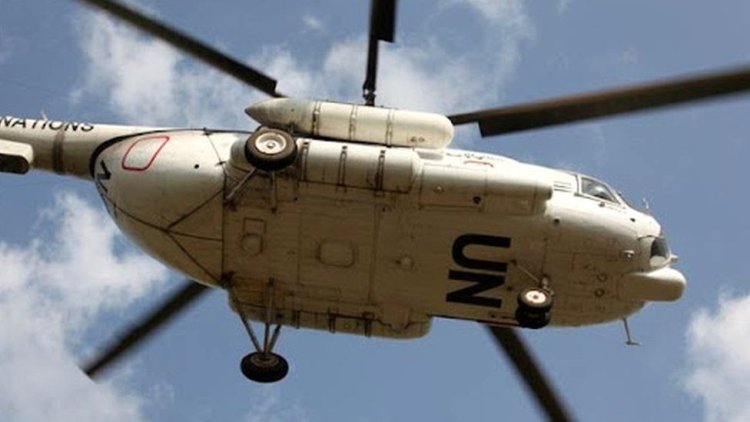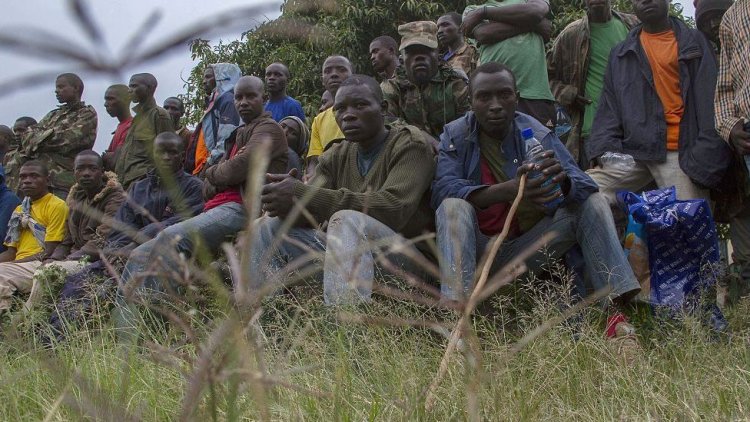M23 militants in the Democratic Republic of Congo deny shooting down a UN chopper.
This is an area southeast of the town of Rutshuru in North Kivu province, near the Ugandan and Rwandan borders, that used to be an important base for the M23.

Rebels in eastern DRC have denied shooting down a UN helicopter, which killed all eight peacekeepers onboard
The army of the Democratic Republic of Congo blamed M23 rebels for the crash, which killed six Pakistanis, a Russian, and a Serbian.
It happened in North Kivu province, where M23 insurgents and the army have been fighting for months.
Since Monday, the rebels, who were forced out of DR Congo in 2013, have reassembled and retaken crucial territory.
According to the United Nations, more than 13,000 people have fled their homes, many crossing into Uganda, to avoid the ongoing violent violence.
The UN mission in the Democratic Republic of Congo (Monusco) claimed it lost communication with the chopper on Tuesday while on a reconnaissance operation above Tshanzu.
This is an area southeast of the town of Rutshuru in North Kivu province, near the Ugandan and Rwandan borders, that used to be an important base for the M23.

According to reports, Uganda and Rwanda have deployed troops to their borders with the Democratic Republic of Congo as a result of the clashes.
Earlier, the Democratic Republic of Congo claimed that some Rwandan military were supporting the rebels, a claim Kigali disputed.
The United Nations has declined to be pulled into the blame game surrounding the helicopter crash, stating that investigations are ongoing.
M23 insurgents seized huge swaths of North Kivu a decade ago but were eventually routed and disarmed as part of a regional peace settlement, with most of the rebels being sent to Ugandan camps.
However, after concerns that the agreement was not being followed, they have begun progressively departing the camps in recent months.
The group was mostly created by Congolese army deserters who took up guns in protest of the government's marginalization of the country's ethnic Tutsi minority and failure to follow through on prior peace agreements.
The fighters took their name from a peace agreement reached by the government and a previous pro-Tutsi militia on March 23, 2009.

 Boakyewaa Lawrencia
Boakyewaa Lawrencia 



































